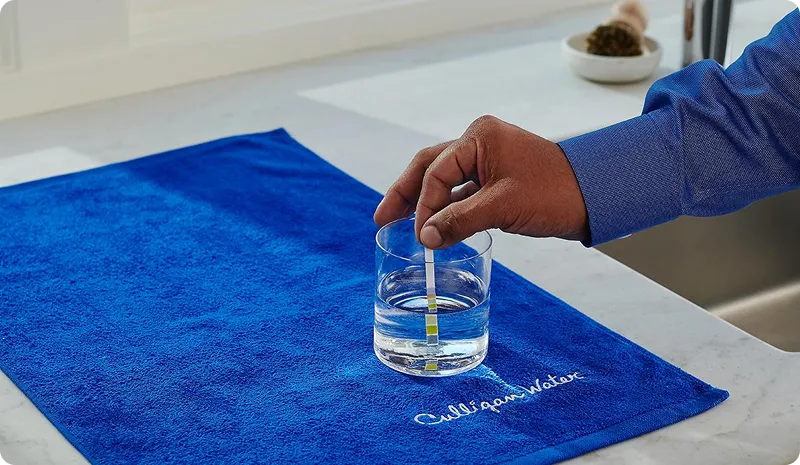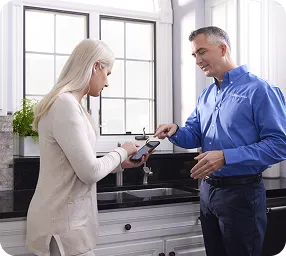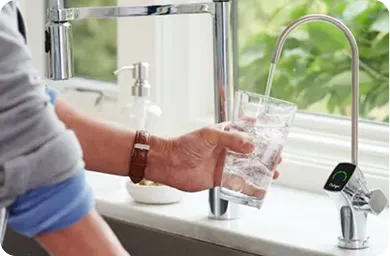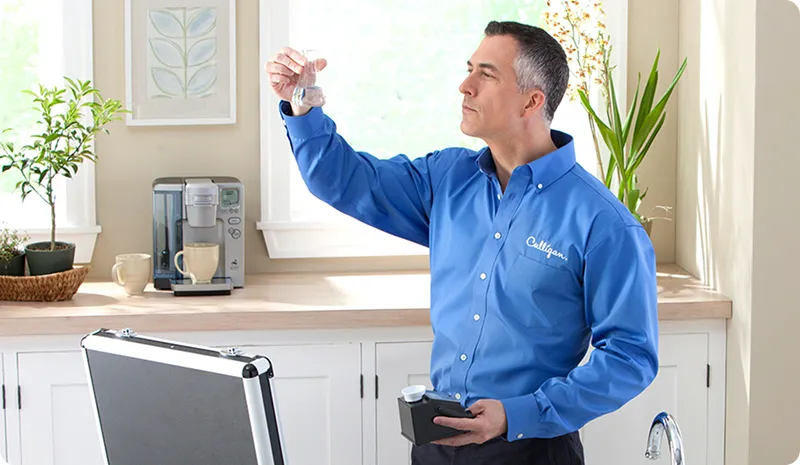Soft Water vs. Hard Water: What’s the Difference?
Published: 9/19/25

Water is water, right? Not quite. There are two types of water that could be in your home: hard vs. soft water. That said, there’s a good chance it’s the latter. According to the US Geological Survey, hard water exists in over 85% of the United States. So, what is the difference between soft water vs. hard water and how does it affect you? Here’s everything you should know about the hardness of water.
What is hard water?
Hard water is the excessive presence of calcium and magnesium – two naturally-occurring minerals in water. The higher amount of these minerals that are present in water, the higher it will rank on the hard water scale. While both essential to everyday health, calcium and magnesium are not essential for water usage. In fact, water hardness can have detrimental effects on your home.
When using water for cleaning purposes, you may notice spots or a film of residue on your dishes, shower, or clothing. Not to mention, you may find particles inside of your appliances like the dishwasher or laundry machine. When hard water is heated, calcium deposits can form. If this builds up, it can greatly damage the performance and lifespan of your appliances. This includes your pipes and even your coffee machine. To make matters worse, your heating costs will skyrocket and the efficiency of your appliances will plummet. If your water is high on the water hardness scale, you might also notice effects on your personal hygiene. Hard water can leave a feeling of residue on your hands, skin, and hair upon washing. As a result, your hair and skin may feel more dry and brittle.
It is up to your water supplier to test water hardness before distributing it to your community. Luckily, you can still combat water hardness by softening your water. Using a water softener can reduce impurities in your water, including calcium and magnesium. What does this mean for you and your home? Cleaner water, appliances, hair, and skin.
What is soft water?
Unlike hard water, soft water is free of harsh minerals that can damage your home and your body. In other words, it is more gentle on your body and your home. Without calcium and magnesium, soft water can prevent scale buildup around your home including your appliances and pipes. Best of all, it increases the effectiveness in soap compared to hard water which can inactivate the soap’s ingredients. In regard to health, soft water can combat the dryness and stickiness caused by cold weather, low humidity, and hard water. What does this mean for your body? Softer, silkier hair and skin after every wash. Systems like Culligan’s Water Softeners can help soften water so you achieve more efficient cleaning in your home.
What kind of water do you have?
If you’ve been living with hard water for a while, you may be oblivious to its detrimental effects. Unsure if you need to soften your water? Look for the tell-tale signs:
- Film or spots on your dishes, appliances, and clothing.
- Scale build-up around faucets or in appliances.
- Dull, flat hair.
- Dry, itchy skin.
- A layer of scum on hair and skin upon washing.
In addition, you can check with your water supplier to find out the hardness of your community’s water. For a customized analysis of your water, get started with a free in-home water test from Culligan. In just ten minutes, you can discover the impurities hiding in your water and learn how to best combat them.





